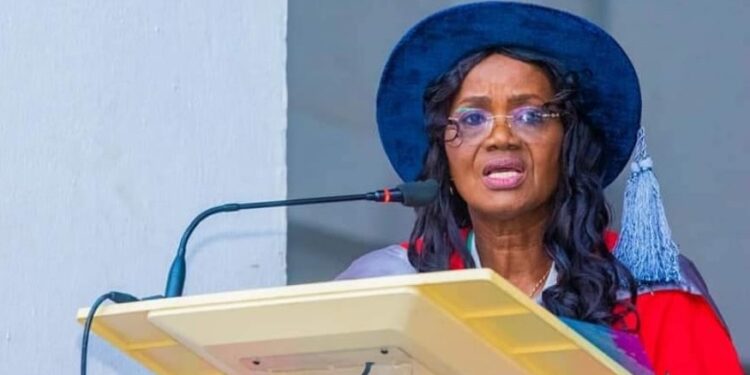A Professor of Early Childhood Care and Education, Esther Oduolowu has tasked the Federal Government with making Early Childhood Education (ECE) services for children from zero to four years.
Oduolowo stated this in Ibadan on Thursday at her inaugural lecture on behalf of the Faculty of Education, the University of Ibadan entitled ‘Sustainable Development in Nigeria: Early Childhood Education as the Cornerstone.’.
Oduolowo commended the Federal Government and its agencies for playing their role in policy formation by adding one component of the Universal Basic Education programme: making one year of pre-primary education free and compulsory for all five-year-old children in Nigeria.
“For the Federal Government, though there is a free and compulsory ECE programme in Nigeria, it is only for the five-year-olds.
“Unfortunately, from birth to four years old children are neglected. Brains develop most rapidly from conception to age two and a half years and nurturing care is essential for children before the age of five years.
“This period is critical for intellectual abilities and social skills development. No wonder, Nigerian children exhibit poor physical and mental growth during this period.
“Nigeria has the highest number of children with stunted growth and school drop-outs.
“Federal government should be proactive in making ECE services available for children from birth to four years and increase the budgetary allocation.
“It will not be out of place if this level of education has its commission, this level of education has the highest number of learners compared with other levels of education,” Oduolowu said.
She also noted the need for more early childhood experts to lessen the burden of lecturers in the department of Early Childhood Education at the University of Ibadan which has been responding by producing the highest number of quality lecturers for ECE programmes in other universities in Nigeria.
The don emphasised the use of the mother tongue or language of the immediate environment as a medium of instruction in early childhood and the lower basic level of education in Nigeria.
“But this policy is not implemented despite its efficacy in learning. No education system can afford to disregard it without its being detrimental to the child’s mental development.
“Thoughts and language go together, we dream, think and solve problems in our language of thought which is often our mother tongue. This view was supported by Fafunwa and Obemeata’s study in 1985,” Oduolowu said.
Oduolowu identified the effects of poverty and malnutrition on early childhood education citing a report by the Lancet on child development in 2016 which revealed that 250 million children under age five are not likely to reach their potential.
“This is because their development has been stunted by stress, lack of early stimulation and learning and poor nutrition.
“Nigeria is among the top 10 countries with the largest number of children at risk, with more than 60 per cent of children younger than Five years being at risk of poor development.
“The average Nigerian child is highly deprived in terms of good health proper care, education and rights to basic requirements of life.
“As one of the poorest nations of the world, high levels of mismanagement, unemployment, and poor basic social services limit the access of Nigerians in general and the child in particular to a quality life,” she said.
According to her, UBEC 2018 reported that the situation of children in the educational sector is not cheering in that less than 30 per cent of children aged zero to five are attending any form of organised childcare programme preschool.
“The fact that the poverty level in Nigeria high further limits the opportunity of children to thrive and develop as their other counterparts in the developed countries.
“The aspiration of developing resourceful human capital from early childhood is a dark spot if this level of education is not prioritised,” Oduolowu said.











